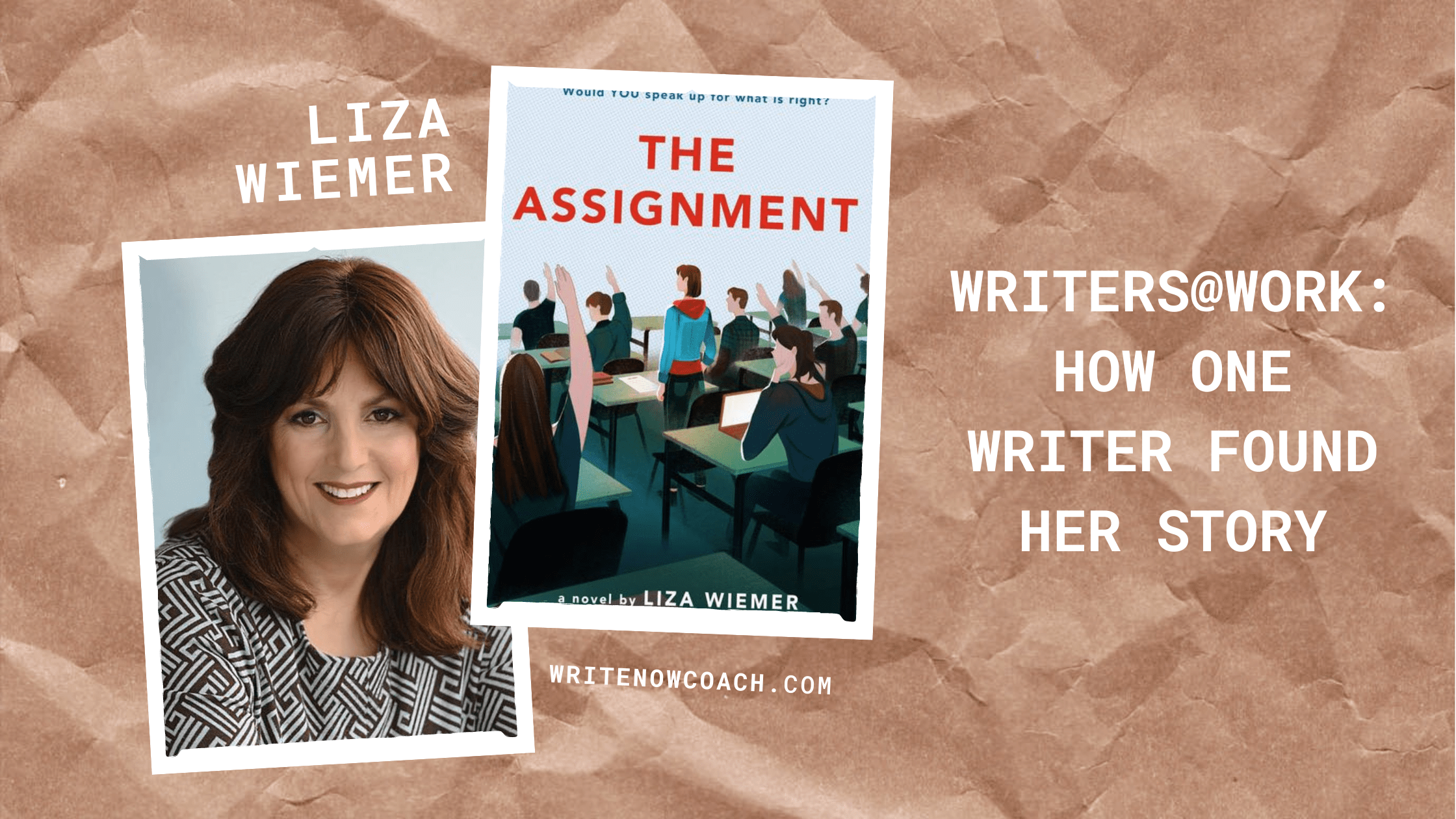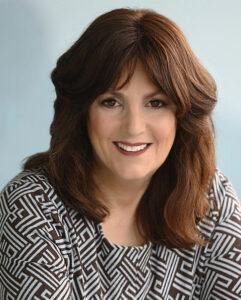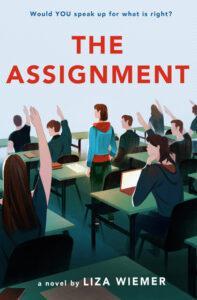Writers@Work: An Interview with Liza Wiemer
August 25, 2020
Note From Rochelle
Dear Writers,
This fall, I’d like to feature more interviews with writers. If you’re a writer who has a book coming out, who has landed an agent, or who has a unique take on writing—email me. I’ll schedule you for a post!
A note on the links. If you’re interested in any of the books mentioned in the newsletter, you can purchase them at my special bookstore at bookshop.org. I make a tiny percentage of the profit to spend on—what else—more books!
Today, I’m delighted to welcome Liza Wiemer to the blog to talk about her brand new book, The Assignment. If you’ve wondered where to find a story idea that’s a hot topic, you’ve got to read this post!
Enjoy!
Rochelle

Writers@Work: An Interview with Liza Wiemer
Hi, Liza. Welcome to the blog. Can you tell us about your new book, The Assignment and how you found the story idea?
Thank you so much for having me, Rochelle! I love your blog. It’s an incredible resource and your author interviews are fantastic.
The Assignment was inspired by real-life events. But first, a brief description:
In the vein of the classic The Wave and inspired by a real-life high school assignment, this riveting novel explores discrimination and antisemitism and reveals their dangerous impact.
On April 4, 2017, I visited Oswego, New York, for a book signing at River’s End Bookstore for my debut young adult novel, Hello? Before the event, I stopped at a local grocery store but couldn’t exit my car because of a downpour. So, I scrolled through Facebook. That’s when I saw the horrifying headline “Homework? NY Students Debate Exterminating Jews.” The article described how two teens, Archer Shurtliff and Jordan April, refused to do an antisemitic assignment requiring students to debate the merits of the Final Solution. To my shock, this took place in Oswego! How was possible that I ended up in a town where people supported an assignment advocating for the Holocaust?
I was horrified.
I decided to ask the bookstore owner to help me connect with the teens—I wanted to let them know that I thought they were brave. Four steps into the bookstore, there was Jordan, one of the teens from the article! It turned out she worked there. Later that evening, we had a three-way call with Archer.
For a more detailed explanation on how this novel came to be, check out my website post: The Story Behind THE ASSIGNMENT
Can you talk about your background as an educator and how this helped you write this book? What advice do you have for other educators who long to write?
My passion for teaching started with my grandma. She was a kindergarten teacher, and I saw how much she loved it. I have childhood memories of going with her to her school and spending time with her and her students. She radiated joy and I saw how much her students loved her and how much she loved them. It was eye-opening to see her in a role other than the best grandma in the whole world. She was also creative and for the time, unconventional. Grandma did a George Washington play that reminds me of the casting of today’s Hamilton.
Grandma was also in favor of women’s rights, didn’t cave into old-fashioned gender roles—my grandpa did dishes every night, vacuumed—not activities most men did in the 1960s, 1970s etc. My grandfather was also a nurturer and was babysitting my kids until he passed away at age eighty-eight. So why is this important to me as an educator and writer? They were strong role models. If my grandparents were alive today, I know she would be pleased that I chose Logan, a gender-neutral name for my female lead. Without a doubt, my grandparents attitudes impacted my teaching and what kind of educator I wanted to be.
I found writing Mr. Bartley, the beloved teacher who gives the assignment, to be quite a challenge. I’ve read about many racist or antisemitic assignments in the news and often the teacher comes across as a hateful, awful person. But we know the vast majority of human beings are complex. I wanted to show that complexity and those nuances. I hope readers will go through an array of emotions toward him. This was important to me because as an educator I was both angry and sympathetic.
Mr. Bartley is 100% a figment of my imagination and before I even put one word down for this novel, I spent a lot of time contemplating these questions: Why would a teacher give an assignment like this? What are the deeper reasons? What kind of person is he? How do students feel about him? What is his role in the school? The community? What’s his relationship like with the principal? His wife? Other teachers? What does he value? What are his flaws? Why would he stay stubborn?
Early in your career you wrote spiritual nonfiction. You’ve also written other nonfiction books. Can you talk about how you made the shift to writing and publishing fiction. Any tips for readers who want to do the same?
As an educator, writing for young adults seemed like a natural progression. At first, the shift wasn’t that easy. I had a lot to learn because the writing styles are completely different. But I will say that my non-fiction background was helpful because I was used to interviewing people to gain information. I applied that skill to interviewing my characters. When you get dig deep into your characters’ histories, their thoughts, emotions, relationships, likes, dislikes etc. by interviewing them as if they are real people, you’d be amazed at what can be revealed. I believe it’s our job as authors to know absolutely everything about our characters. This is different than real life. There is no way we can know everything about ourselves, family members, neighbors, friends. But in fiction, because it’s all a part of our imagination, we can create the most well-rounded, fascinating people through the interviewing process.
This has been a challenging year for a lot of people. How have you managed to stay sane and calm and write forward?
I admit that I haven’t been writing much, but it has less to do with Covid and more to do with finding the story I want to write next. I revised a picture book that needed updating from twenty-two years ago, so I’m excited about that. It’s a story that has never left me so it just proves that you can dust off the old and polish it up!
We had our son and daughter-in-law living with us until recently. I cherished every moment of that. How often do you get to spend that much time with your grown children? For me, it was an amazing gift.
What are you reading now?
I just re-read Cinder by Marissa Meyer and it’s amazing how relevant it is for today. The characters are in the middle of a pandemic so it was interesting to compare real life to Marissa’s imaginative world. Currently, I’m reading James McBride’s Deacon King Kong.
 About the author. Liza Wiemer is an award-winning educator with over twenty years of teaching experience. Her second young adult novel, The Assignment, will be published by Delacorte Press on August 25, 2020. To date, The Assignment will also be published in Russia, Poland, Italy, and South Korea. Hello?, her debut contemporary YA novel, was named a Goodreads Best Young Adult Novel of the Month. In addition, Liza has had two adult nonfiction books published and several short stories included in the New York Times bestselling Small Miracles series. She has had articles published in various newspapers and magazines. A graduate of UW-Madison, Liza lives in Milwaukee, Wisconsin with her husband and has two married sons.
About the author. Liza Wiemer is an award-winning educator with over twenty years of teaching experience. Her second young adult novel, The Assignment, will be published by Delacorte Press on August 25, 2020. To date, The Assignment will also be published in Russia, Poland, Italy, and South Korea. Hello?, her debut contemporary YA novel, was named a Goodreads Best Young Adult Novel of the Month. In addition, Liza has had two adult nonfiction books published and several short stories included in the New York Times bestselling Small Miracles series. She has had articles published in various newspapers and magazines. A graduate of UW-Madison, Liza lives in Milwaukee, Wisconsin with her husband and has two married sons.









